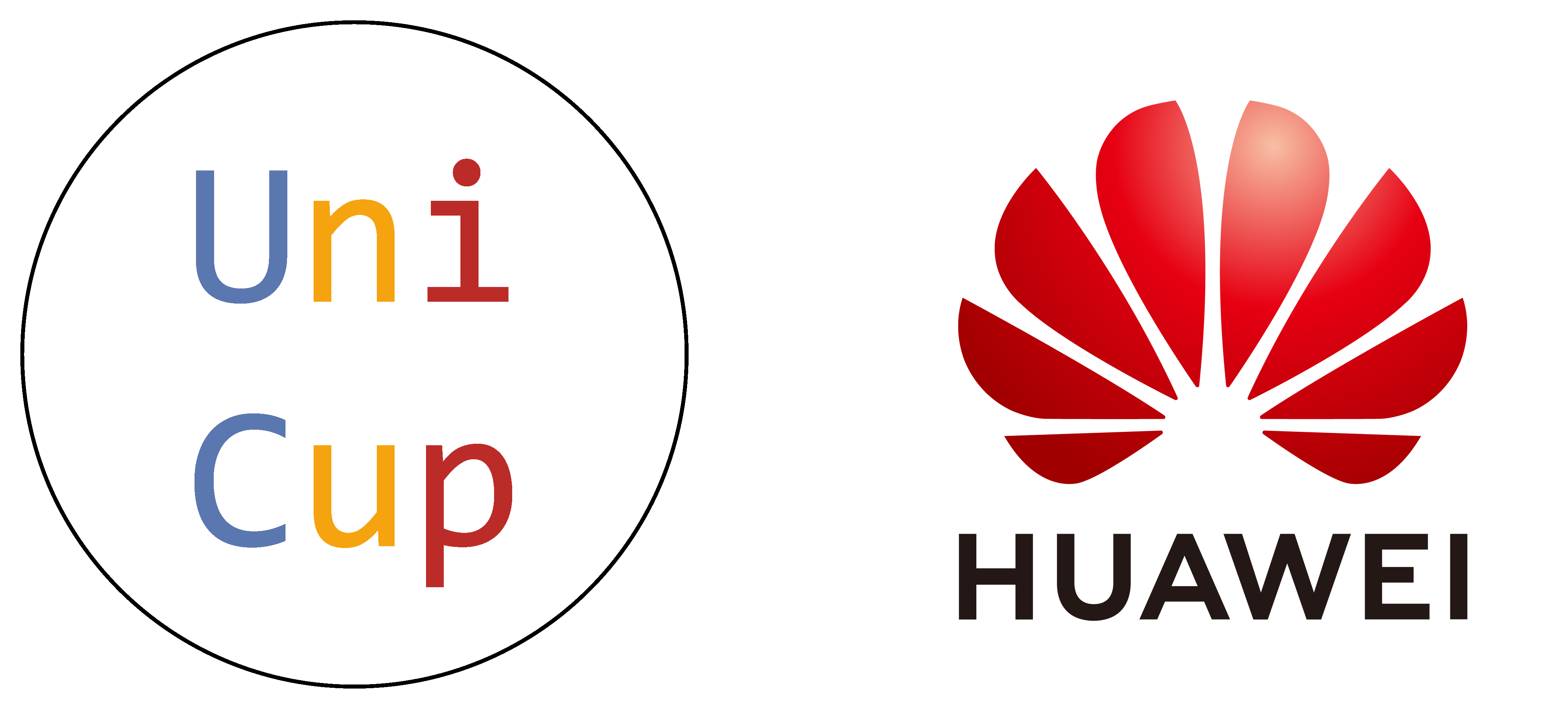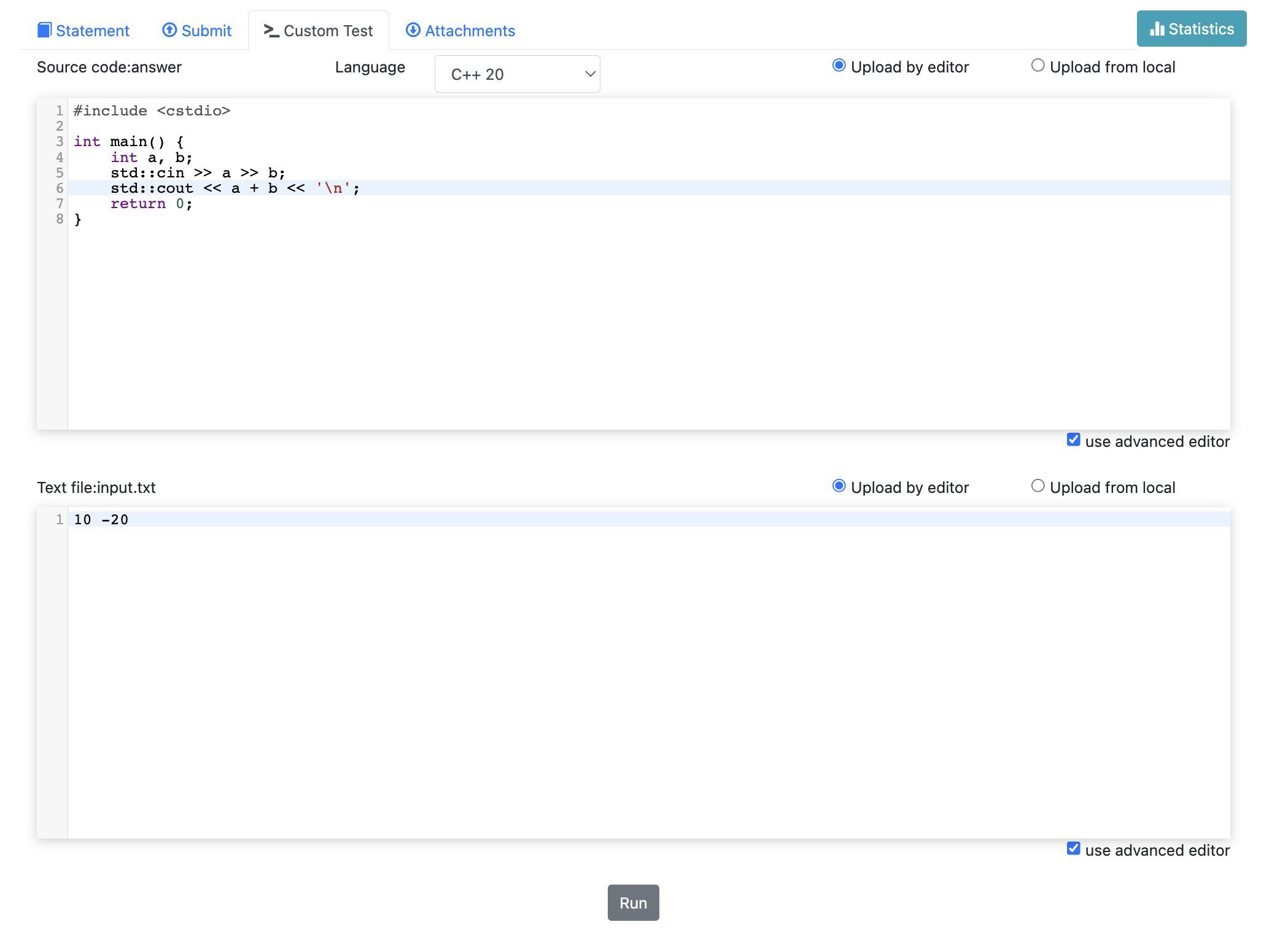The 3rd Universal Cup Semifinals Rules
Last update: Aug 11, 2025
Issued by the Scientific Committee (SC) and Technical Committee (TC)
本文档的中文版本可以在这里找到。
The Universal Cup is an organization aiming at serving the competitive programming community, dedicated to provide high quality training resources and host onsite global events. The 3rd Universal Cup Semifinals (hereinafter “Semifinals”) is a qualification contest for The 3rd Universal Cup Finals (hereinafter “Finals”), which is a part of our Finals Qualifications
The following document defines the rules of the semifinals. You must read and follow the following rules. Violating the rules might cause you disqualified from the Semifinals and your future finals qualifications.
Please note! We introduced a desktop capture requirements for all teams who wishes to qualify to the Finals thourgh Semifinals. Raed “Proctoring Recordings” section carefully for more details!
Contest Format
- The competition will last five hours. In case of unforeseen circumstances, the chief judge has the authority to modify the contest duration. If any changes occur regarding the contest format or duration, participants will be notified in a timely and uniform manner.
- There will be at least ten (10), but no more than fifteen (15) problems in the contest.
- Teams may submit claims regarding potential mistakes in a problem via a clarification request. Clarification requests must be written in English only.
- Clarifications may be issued during the competition. These clarifications may include explanations of problem statements, additional details, extra examples, or modifications to a problem (including additions, removals, or changes).
- All clarifications will be provided in English only, in the contest index page of the contest platform.
Problems
- All problem statements will be provided in English only.
- Teams may use dictionaries or online translation tools to translate the statements into other languages. No official translations will be provided.
- No partial scores will be awarded for any problem.
- The types of problems in the competition include:
- Standard I/O problem: Your program must read input from the standard input and write output to the standard output.
- Interactive problem: The program interacts with an interactor through standard I/O.
- Multiple-Run Problem: The program will be executed multiple times, each with a different input.
- Output-Only Problem: Teams do not submit a program but instead submit the final answers directly.
Submissions
- The Semifinals will be hosted on QOJ, which is also the contest system we used in the Online stages of the Universal Cup.
- You are allowed to submit solutions implemented in C, C++, D, Go, Haskell, Java, Kotlin, Pascal, Python 3, or Rust. Output-only tasks might be provided. In such case, you only need to submit your output file instead of a solution source code.
- The detailed language specifications should be referred to in the TechNote document (will be published later).
- Each submission is judged as accepted or rejected. No partial scores or test previews will be given to the teams.
- Rejected runs will be marked with one of the following:
- Compilation Error
- Runtime Error (RE)
- Time Limit Exceeded (TL)
- Memory Limit Exceeded (TL)
- Wrong Answer (WA)
- Judgement Failed, which means our judge is broken and not functioning properly.
- If you receive a
Judgement Failedverdict, do not re-submit. Judges and the SC will handle the issue.
Scoring, Ranking, and Awarding
- Teams are ranked according to the most problems solved.
- Teams who solve the same number of problems are ranked first by the least penalty, with the following tie-breakers in order:
- the tied teams will be ranked according to their last AC time, in milliseconds. Teams has the earlier last AC time will be ranked higher. Teams did not solve any problems will have the last AC time as
00:00:00.000. - if there is still a tie, the tied teams will be ranked according to their ratings on The 3rd Universal Cup.
- if there is still a tie, the tied teams will be ranked according to an additional play-off task.
- if there is still a tie, SC will decide the ranking of the tied teams.
- the tied teams will be ranked according to their last AC time, in milliseconds. Teams has the earlier last AC time will be ranked higher. Teams did not solve any problems will have the last AC time as
- The penalty is the sum of the time consumed for each problem solved plus the penalty in that problem.
- The time consumed for a solved problem is the time elapsed from the beginning of the contest to the submission of the first accepted submission, in minutes.
- The penalty in a problem is twenty (20) minutes times the number of non-accepted submissions before the first accepted submission, excluding the ones with a compilation error verdict.
- There is no time consumed for a problem that is not solved.
- The leaderboard will be frozen 4 hours after the contest starts, and the results submitted after 4 hours will be shown as pending on the leaderboard.
Contest Environment
- Contestants may print out problem statements or use their own computers and electronic devices to read them during the competition.
- During the contest, each team member can use their own computer at the same time, but only one computer is allowed to be used to write code at the same moment.
- Team members are not permitted to use their own electronic devices simultaneously for coding or employing other problem-solving applications.
- This includes, but is not limited to, writing code for solving problems, using scientific computing software for calculations, or running self-written programs for extended calculations.
- Contestants should not submit malicious codes, including but not limited to attacks on the evaluation machine and malicious occupation of evaluation system resources.
- Teams are allowed to browse the Internet to access any materials, but prohibited from communicating with anyone outside their team during the contest. The distribution of any problem-solving materials, including ideas, codes, or auxiliary programs, on the Internet is strictly forbidden.
Proctoring Recordings
- All teams seeking to qualify for the Finals via the Semifinals must provide screen recordings of all workstations (i.e. computers) used by all team members. Failure to provide a valid recording might cause you to be disqualified from competing for Finals quotas.
- Recordings must capture the full desktop from before the contest begins until after it ends.
- You must record all the computers for all team members.
- Recording software must capture all on-screen activity; browser-only or editor-only recordings are invalid.
- You do not need to record faces, desks, or scratch work on tablets. Only screen-recording is required.
- Videos must be uploaded within 48 hours after the contest ends via one of the following:
- Your video must satisfy the following minimum recording quality:
- Resolution: 720×480 or higher
- Frame rate: ≥ 10 FPS
- If you cannot upload within 48 hours, email [email protected] with your situation and the SHA-1 hash of your recordings.
- In case if you meet any technical difficulties on preparing your recordings, please send an email to [email protected]
Q&A:
- What is the purpose for introducing a recording? It is very annoying.
- A: The recording is only used to validate your performance in the Semifinals. If serious concerns are raised by the committee or other contestants, we need some materials to prove you are following our rules, especially the usage of only one computer for solving.
- Do I have to provide a full recording? What if my system crashed and I lost some parts of the videos?
- A: The only purpose of the recordings is to prove that you are not violating the rules. In case your system crashes or your participation is stopped for unforeseen reasons, you can have an incomplete recording without those moments, as long as you are not using that device for solving purposes. We only monitor how your team produced all the solutions.
- My computer is very slow. Recording the screen while solving problems will make me intolerable for participating in the contest.
- A: We set a very generous recording minimum requirement: 720×480p for at least 10 frames per second. This should not affect performance for any modern computer system. If you still cannot record the screen properly, you can use another camera to record your computer monitor as an alternative solution.
- I have serious privacy concerns. How will you use my recordings?
- A: The recording will only be used for validation purposes. If no concerns are found for your participation, we will not view your recordings at all. In either scenario, the recordings will not be shared with anyone else.
- Are we allowed to publish our recording publicly?
- A: You are free to publish them.
Appeal
- Teams may submit an appeal regarding potential mistakes in any problems, verdicts of the submissions, or other contest decisions.
- Appeals must be written in English only.
- Appeals should be sent to [email protected] within 24 hours after the end of the contest session.
- Judges will give a decision to an appeal, which might change a verdict given during the contest.
- If you are still not satisfied with the results given by the judges, you may file a final appeal with the Universal Cup SC. The decision of the Chair of the SC shall be final.

